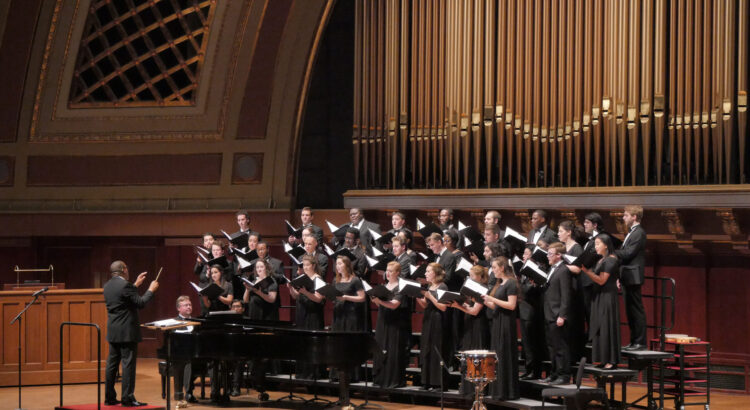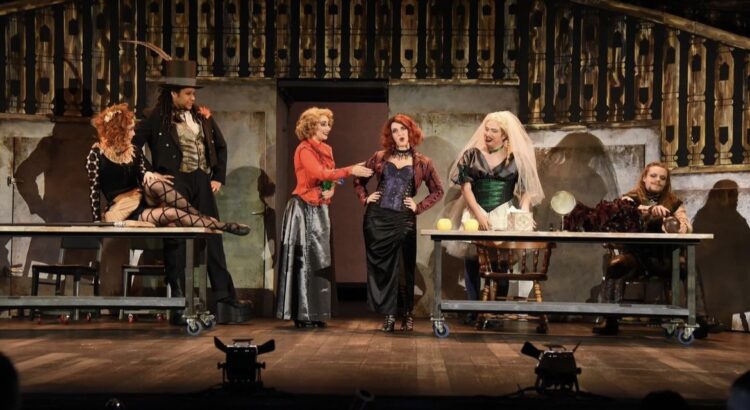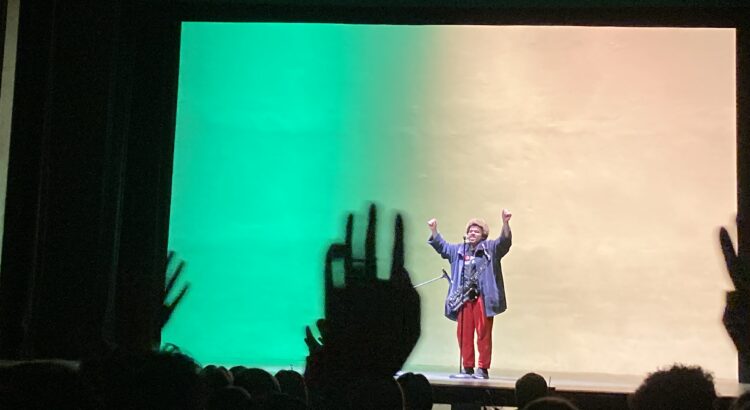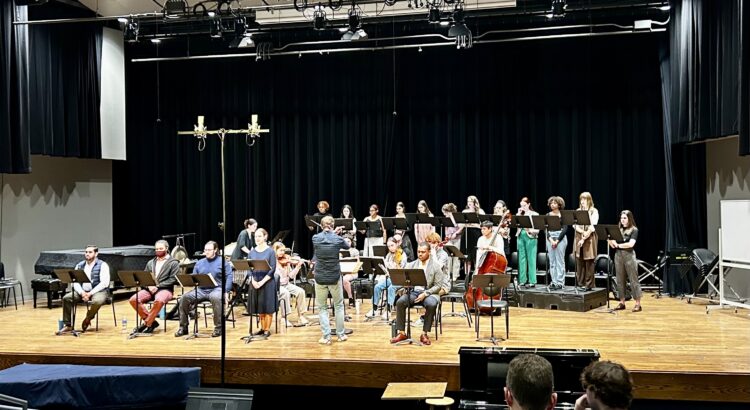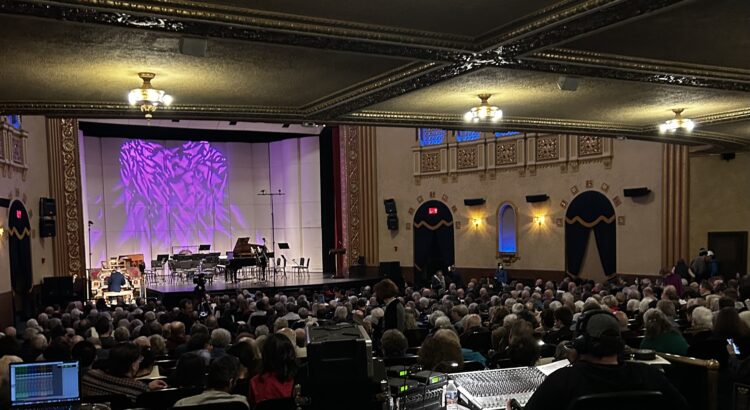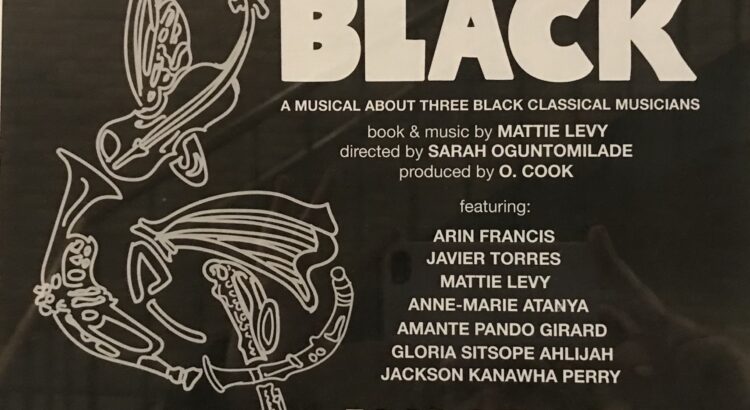The Chamber Choir is the most distinguished choir at the University of Michigan, led by the incomparable Dr. Eugene Rogers from SMTD. They consist of mainly vocal performance majors but admit select students from other schools in the University. This concert is leading up to the Chamber Choir’s international tour to La Plata and Buenos Aires, Argentina.
The choir began the concert with two pieces including Thomas Tallis’s motet, O Nata Lux (1575), and a unique reprise entitled O Nata Lux (after Tallis) from 2020 by composer Daniel Knaggs. This was an interesting representation of music from the past and present, reminding me of how we respect and modify tradition through art. Knaggs stated (in the program notes) that he wrote the reprised work as a response to the original motet. He used the 3-note motive from the original work, adding free and sporadic hums to reflect the text’s closing prayer. Both works were brilliantly conducted by Katherine Rohwer, a freshly named Doctorate of Musical Arts in Choral Conducting.
For the following hour and a half of the concert, the chorus performed Felix Mendelssohn’s epic oratorio, Elijah. (An oratorio is a composition with a dramatic narrative or text usually constructed for orchestra, choir, and soloists.)
The lengthy Elijah follows the Prophet Elijah from 1 Kings and 2 Kings of the Old Testament in the Bible, with all the text coming from the book itself. There were six soloists from the choir including Andrew Smith (Elijah), Juliet Schlefer (Widow/soprano), Tyrese Byrd (Obadiah/tenor), Amber Rogers (soprano), Katherine Rohwer (Queen Jezebel), and Ella Peters (Angel). The soloists were outstanding, performing with equally cultivated drama and vocal integrity. Smith performed the bulk of the piece (singing the titular role of Elijah), overpowering Hill Auditorium with his wonderfully silky baritone voice.
I am always extremely impressed with the versatility of the Chamber Choir singers. Dr. Rogers brings in a selection of styles to his choirs and has a clear vision for each new piece the chorus confronts. Last spring, the combined choirs at U-M performed a concert of spiritual-inspired compositions by the acclaimed composer Stacy V. Gibbs, and in the fall prior performed Wynton Marsalis’ All Rise with the Jazz at Lincoln Center Orchestra. The choirs take on many styles in a range of periods with cohesion and care along with high-level instruction and outreach of the events from Dr. Rogers.
Image thanks to the SMTD website.

